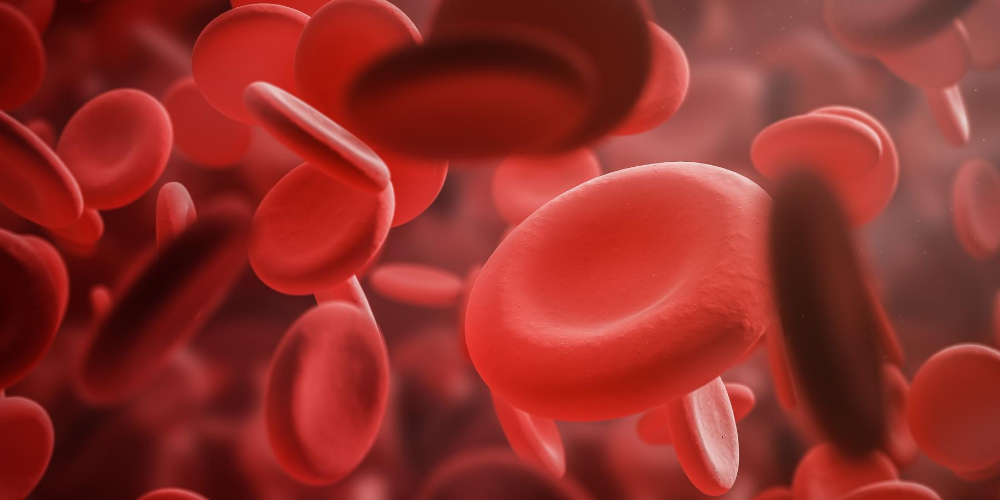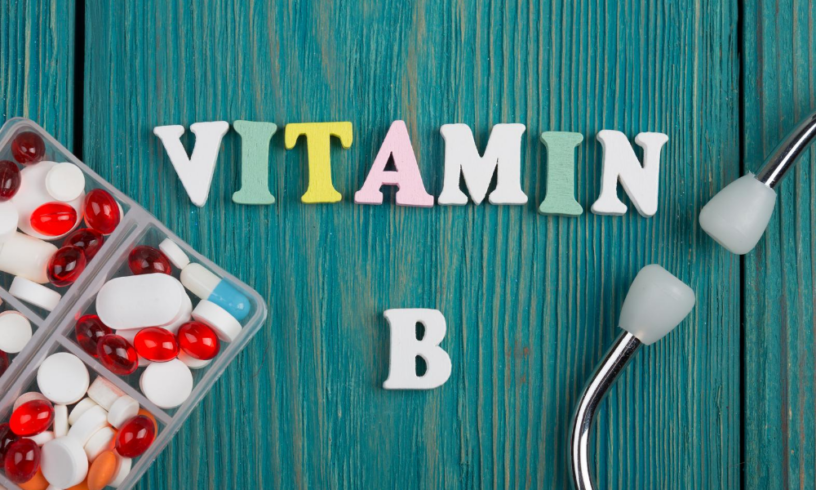Vitamin B is an essential vitamin of the body, belonging to the water-soluble group. In the body, vitamin B plays an important role, B vitamins benefits are involved in metabolism, the activities, and development of the nervous system as well as other organs in the body including skin and hair. Vitamin B is also an essential material in the process of converting food into substances, helping the body absorb energy, regulate the chemical reactions of enzymes or proteins. Important B vitamins include vitamins B1, B2, B3, B6, B9, and B12, they work together as a group. In order for the body to work stably, it is necessary to maintain a balanced ratio of B vitamins. The drugs on the market today are all complex of B vitamins with a reasonable proportion for each disease.


1. Common B vitamins benefits
1.1 Common B vitamins benefits : Vitamin B1


- Heart support: Vitamin B1 functions to support the production of neurotransmitters from nerves and muscles to ensure the heart works properly.
- Vitamin B1 helps with the development of the myelin sheath. Lack of this vitamin can lead to degeneration of the myelin sheath, adversely affecting brain health, which causes nerve damage.
- Preventing cataracts: Vitamin B1 is also thought to help prevent cataracts. A study has demonstrated that adequate intake of vitamin B1 may reduce the risk of vision loss caused by cataracts.
- Preventing Alzheimer’s: Vitamin B1 slows down the progress of Alzheimer’s disease. People with this condition need vitamin B1 supplements because it optimizes the metabolism and brain function of the body.
- Improve memory: Vitamin B1 can improve memory and increase concentration. In addition, vitamin B1 has a positive effect on the nervous system and helps keep the spirit healthy.
- Supports digestion: Vitamin B1 aids in the secretion of hydrochloric acid – needed for digestion. This vitamin also significantly increases cravings and is also beneficial in maintaining weight.
1.2 Common B vitamins benefits : Vitamin B2


- Preventing migraines: Vitamin B2 helps reduce symptoms as well as the degree of pain and the duration and frequency of migraines.
- Prevent eye diseases: Studies have shown that deficiency of riboflavin (vitamin B2) increases the risk of certain eye problems. Vitamin B2 can help prevent eye disorders including cataracts and glaucoma.
- Helps prevent and treat anemia: Anemia is caused by a number of factors including reduced red blood cell production, red blood cells that are unable to carry oxygen, and loss of blood. This disease can lead to fatigue, shortness of breath, shortness of breath, reduced work capacity, and more. Vitamin B2 is involved in the production of red blood cells, which helps prevent and treat cases of anemia.
- Maintain proper energy levels: Vitamin B2 is used by the body to convert food into energy and maintain brain function, neurotransmitters, digestive functions, and hormones. This is one of the reasons why riboflavin is important for body growth and recovery.
- Antioxidants: Vitamin B2 acts as an antioxidant that controls the harmful free radicals in our bodies. Vitamin B2 is needed for the production of an antioxidant called glutathione, which acts as a free radical killer and can detoxify the liver.
- Hair and skincare: Vitamin B2 plays an important role in maintaining collagen levels for healthy skin and hair. Collagen is the structure needed to maintain the skin’s youthfulness because it prevents wrinkles.
1.3 Common B vitamins benefits : Vitamin B3


- Improve cholesterol levels: Vitamin B3 is considered an important treatment option to help lower cholesterol levels. It has been shown to reduce the risk of heart disease in patients with dyslipidemia. It is to lower LDL-cholesterol, triglycerides, or both. This supplement has been shown to be beneficial for people at risk of heart attack, stroke, or other forms of heart disease.
- Reducing the risk of heart disease: Vitamin B3 also brings other benefits for heart health. Includes atherosclerosis reduction. This is the dangerous sclerosis of arteries that can lead to coronary artery disease.
- Regulate blood sugar: In fact, vitamin B3 benefits diabetes by improving the function of the beta cells of the pancreas. These are the cells responsible for producing insulin. In addition, this substance reduces the risk of high cholesterol and heart disease. Both of these problems are common in diabetics.
- Improve skin health: Some people use vitamin B3 to improve skin health and treat conditions like acne and inflammation. In fact, it is used as a natural skin care treatment. Because it can reduce skin inflammation, irritation, redness, and more.
- Support brain function: Studies have shown that vitamin B3 is beneficial for brain health. It may also help protect against Alzheimer’s disease and other age-related brain disorders associated with cognitive impairment. It is also used to treat and prevent schizophrenia and hallucinations and depression.
- Against birth defects: Vitamin B3 has been shown to prevent DNA defects in cells. Therefore, an increase in B3 levels in pregnant women is likely to reduce the incidence of birth defects in general.
1.4 Common B vitamins benefits : Vitamin B6


- Improve memory: Vitamin B6 stimulates brain development, enhances memory, cognitive ability, and limits Alzheimer’s disease (memory impairment syndrome). At the same time, it also promotes, improves mood, and increases the ability to focus memory for the brain.
- Promoting better mood: Vitamin B6 has the ability to derive 2 types of substances are serotonin and GABA in the brain to help control psychological and psychological problems, reduce depression, fatigue, and anxiety …
- Treatment of anemia: A vitamin that can produce hemoglobin in the blood, which is then transported throughout the body to carry oxygen to the entire body, so people with anemia will improve cures headaches, dizziness, and nausea.
- Eyesight enhancement: Vitamin B6 is considered to be an extremely good vitamin for the eyes. People with low vision can take B6 and folate to enhance eyesight, prevent dizziness, eye disorders, and macular degeneration.
- Improve deeper sleep: Vitamin B6 helps improve sleep because it produces the hormone melatonin – (the hormone that boosts, regulates the circadian clock to balance) makes it easier to fall asleep, sleep deeper, more relaxed spirit, more comfortable.
- The menstrual cycle is more stable: When the body has enough vitamin B6, it will help you to reduce abdominal pain, nausea, fatigue, including leg cramps, acne during menstruation monthly.
- Limiting osteoarthritis pain: Many studies show that if the body is low in vitamin B6, it is prone to osteoarthritis such as back pain, limb pain …. Supplementing adequate vitamins helps to improve the pain caused by arthritis.
1.5 Common B vitamins benefits : Vitamin B9


- Vitamin B9 (Folic acid) is a coenzyme of many metabolic processes in the body, which is needed to produce new cells, including red blood cells and white blood cells. It is especially important at the division and rapid growth of cells of infants and pregnant women.
- Vitamin B9 plays an important role in the formation, recovery, and synthesis of DNA, necessary in DNA duplication and avoid mutation of DNA. Need for men of reproductive age to create sperm, increase the number and quality of sperm.
- Folic acid reduces the amount of homocysteine, the substance that facilitates the development of coronary atherosclerosis, which is essential for patients with angina, myocardial infarction.
- Folic acid is involved in the synthesis of neurotransmitters such as dopamine, adrenalin, noradrenalin … to help the nerve function properly, combats diseases such as sluggish reactions, neurological disorders, autism.
- Folic acid works with vitamin B12 to help produce blood cells against anemia. Therefore, vitamin B9 is often used together with other blood-damaging drugs such as antibiotics, anti-malarial …
1.6 Common B vitamins benefits : Vitamin B12
- Vitamin B12 participates in the synthesis of thymidylate, an ingredient in DNA molecule, providing raw materials for DNA synthesis, contributing to the process of cell division and cell maturation in the body. Lack of vitamin B12 shows a pronounced effect on cells that have as much cell division as blood cells. In fact, most cases of anemia are caused by a lack of vitamin B12 or folic acid. The patient is pale, weak, easily tired, loss of appetite, nervousness, headache, shortness of breath, fainting.
- Help maintain energy: Vitamin B12 is beneficial for your metabolism because it is necessary for the conversion of carbohydrates in food into glucose for use in the body. Glucose is used for energy, so this is why people with vitamin B12 deficiency are often tired.
- Vitamin B12 is needed for nerve signaling. It plays a role in nerve signaling and nerve cell protection, so it is used to reduce the risk of neurodegenerative disease. Including Alzheimer’s disease and dementia.
- Improve mood and depressive symptoms: One of the most researched benefits of vitamin B12 is its ability to help regulate the nervous system, reduce mood disorders like depression and anxiety.
- Maintain cardiovascular health: Vitamin B12 helps to reduce high homocysteine levels, now considered a major risk factor for heart disease. Homocysteine is an amino acid, its concentration in the blood is affected by the concentration of B vitamins in the blood, including vitamin B12. By lowering homocysteine levels in the blood, Vitamin B12 helps prevent heart diseases like heart attacks or strokes.
- Skin, hair, and nail care: Vitamin B12 is essential for healthy skin, hair, and nails because it plays an important role in cell regeneration. Vitamin B12 prevents skin dryness, inflammation, and acne and can be used for skin in psoriasis and eczema. It can also reduce hair breakage and make nails stronger.
- Helping a healthy fetus: Vitamin B12 plays a role in creating nucleic acid or DNA – the basic genetic material used to make the whole body. Therefore, vitamin B12 is not only an important nutrient for growth and development but also an important ingredient for a healthy pregnancy. Getting enough vitamin B12 along with folate for mothers helps reduce the risk of birth defects in the fetus.






Leave a Reply